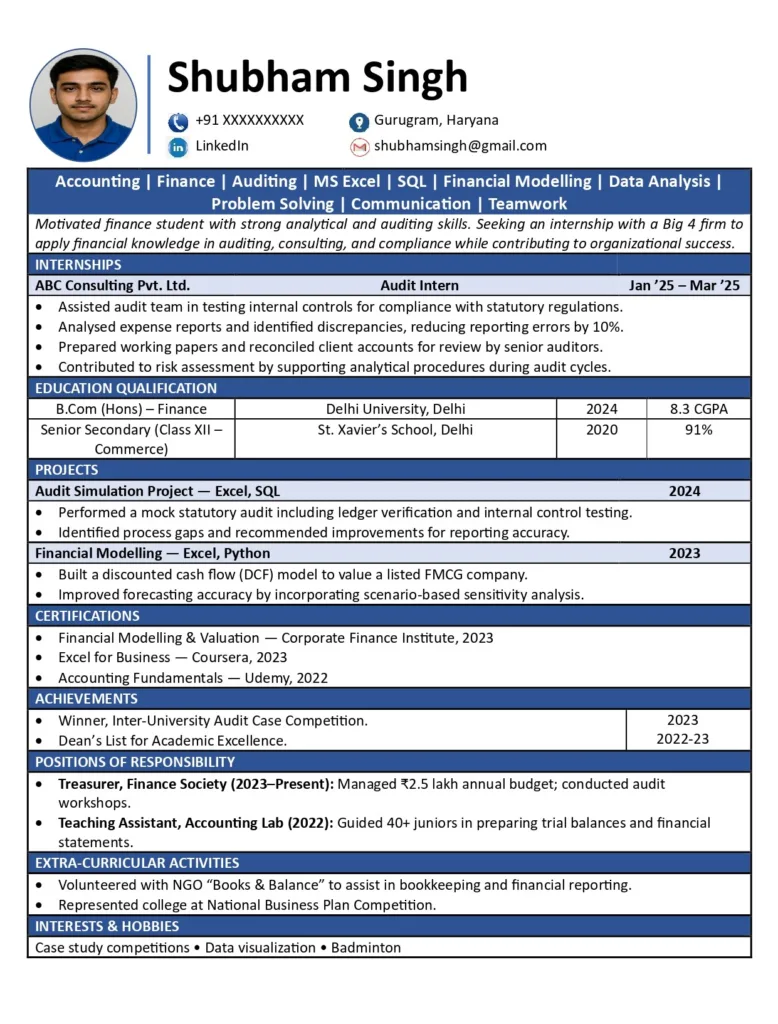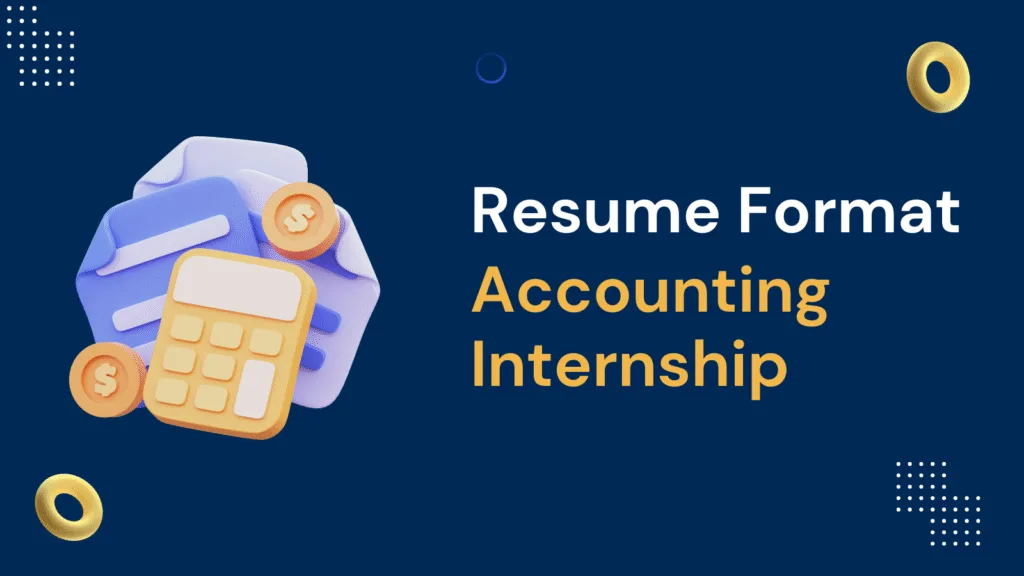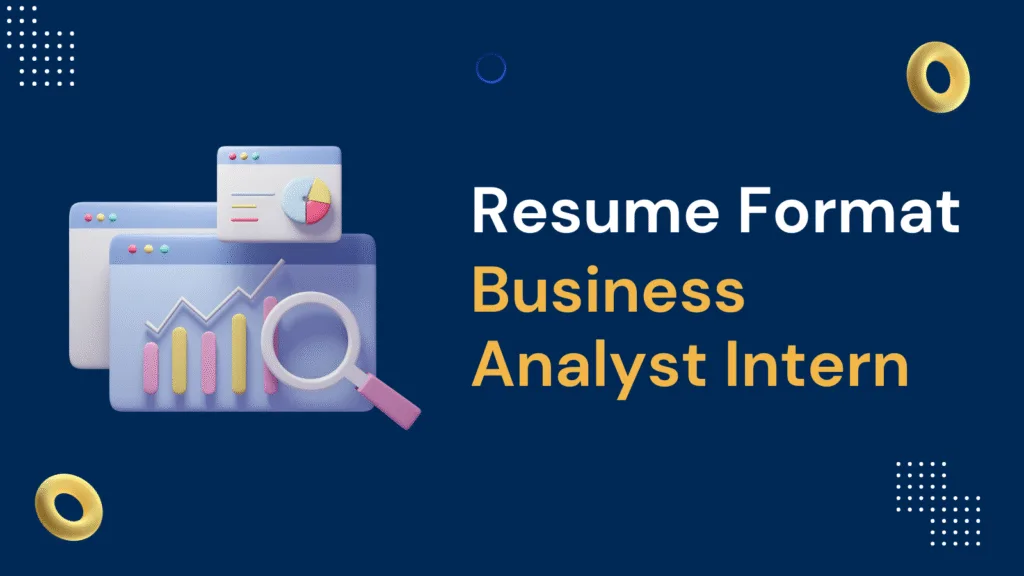How to Write a Winning Big 4 Internship Resume
Written by: Rajat Bhardwaj
Landing an internship at one of the Big 4 accounting firms—Deloitte, PwC, EY, and KPMG—is a dream for many students. These firms receive thousands of applications every year, which means your resume needs to stand out.
This guide will help you structure and optimise your Big 4 internship resume so it gets noticed by recruiters and passes Applicant Tracking Systems (ATS).
Why the Resume Matters for a Big 4 Internship
- High competition: Recruiters spend only 6–8 seconds scanning a resume.
- ATS screening: The right keywords are essential to ensure your resume isn’t filtered out. Learn more in our ATS-friendly resume guide.
- Professional impression: A clear, well-structured resume reflects the qualities the Big 4 value—attention to detail, professionalism, and communication skills.
Resume Format for Big 4 Internship
A one-page resume works best for internships. Use a clean, professional format with clear headings:
- Contact Information (Name, Email, Phone, LinkedIn)
- Professional Summary / Objective
- Education
- Skills
- Experience / Internships / Projects
- Leadership & Extracurriculars
- Certifications (if any)
Not sure what to include? Check our guide on personal details in a resume.

Build Your Own Big 4 Internship Resume
Get access to our DIY resume template—simple, ATS-friendly, and tailored for internships.
Writing Each Section
1. Professional Summary (2–3 lines)
Focus on your skills + career goals. Example:
“Ambitious Accounting student with strong knowledge of financial reporting and audit procedures. Skilled in MS Excel and data analysis, seeking an internship with Deloitte to apply analytical and problem-solving skills in real client projects.”
👉 Need help with this section? Read our blog on how to write a profile summary for a resume.
2. Education
- University Name, Degree, Specialisation
- GPA (if above 3.0/4.0 or 7.5/10)
- Relevant coursework: Accounting, Taxation, Financial Management, Auditing
📌 Also see: How to write education details in a resume.
3. Skills
- Technical: MS Excel, Power BI, QuickBooks, SAP, SQL
- Analytical: Data analysis, Financial modelling, Research
- Soft Skills: Communication, Teamwork, Time management
🔗 Explore: Top transferable skills employers look for and skills to add to a resume.
4. Experience / Projects
Even if you don’t have prior work experience, highlight projects or case studies:
- “Prepared a financial statement analysis for XYZ company as part of coursework; identified cost-saving opportunities worth 5% of revenue.”
- “Conducted mock audit project in class, tested internal controls and documented audit findings.”
👉 Related read: Work experience in a resume and how to list freelance work.
5. Leadership & Extracurriculars
Big 4 firms value teamwork and leadership. Example:
- Treasurer, Finance Club – Managed budget of ₹50,000 and organised 3 events with 200+ participants.
6. Certifications
If you’ve taken short courses like:
- Excel Advanced
- Financial Modelling
- IFRS Basics
- Data Analytics (Coursera/edX)
Include them to strengthen your profile. You can also explore extra value-adds like NCC certificate benefits.
Tips to Stand Out
✅ Use action verbs: “analysed,” “managed,” “developed,” “collaborated.”
✅ Quantify achievements wherever possible (numbers, percentages, amounts).
✅ Align resume keywords with job description (audit, tax, consulting, advisory).
✅ Keep formatting simple: no fancy fonts or colours.
✅ Save and submit in PDF format unless specified otherwise.
For more inspiration, explore our Forbes-style resume template.
Sample Big 4 Internship Resume Headline
“Accounting & Finance Student | Excel & Audit Projects | Aspiring Big 4 Intern”
This creates a professional first impression on both resume and LinkedIn. Learn how to boost reach with our LinkedIn referral strategy guide.
Final Thoughts
Your Big 4 internship resume should show three things:
- Strong academic foundation
- Practical skills & projects
- Leadership potential
Remember: the resume doesn’t get you the job—it gets you the interview. Focus on clarity, relevance, and impact.
If you’re preparing beyond the resume, also check out:
- Ace your next interview
- Mastering the final round interview
- What to do when you don’t know the answer in an interview
FAQs
1. Is a Big 4 internship worth it?
Yes, a Big 4 internship is highly valuable. It gives you exposure to real client projects, builds technical and soft skills, expands your professional network, and adds prestige to your resume. Many interns also receive Pre-Placement Offers (PPOs).
2. What is the minimum GPA for the Big 4 internship?
Most Big 4 firms prefer candidates with at least a 3.0 GPA (on a 4.0 scale) or 7.0+ CGPA (on a 10-point scale). However, GPA is just one factor—interview performance, technical skills, and extracurricular achievements also matter.
3. What is the Big 4 acceptance rate?
The acceptance rate is very competitive—often below 5–10%. These firms receive thousands of applications for a limited number of positions, so only the top candidates make it through.
4. Which Big 4 is hardest to get into?
It varies by region and service line, but generally:
- PwC and Deloitte attract the highest number of applicants globally.
- EY and KPMG are also competitive but sometimes considered slightly easier in specific markets.
Overall, the difficulty depends more on the role (audit, consulting, tax, advisory) and location than the firm itself.
5. Who is the top 1 in Big 4?
As of recent global revenue rankings, Deloitte holds the #1 position among the Big 4, making it the largest professional services firm in the world.
6. Who is the smallest of the Big 4?
Currently, KPMG is the smallest of the Big 4 in terms of global revenue and workforce size.

